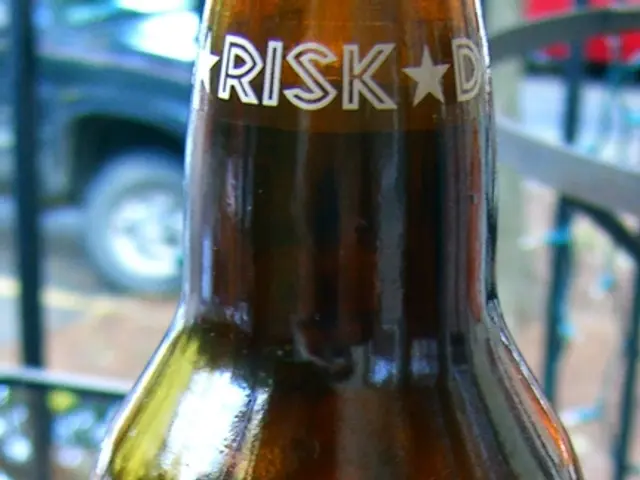Vanishing Acts: The Uneasy Legality of Faking Your Own Death
Can It Be Considered Unlawful to Simulate One's Own Demise? Exploring the Legal and Personal Ramifications of Vanishing from Life
Have you ever pondered over the question, can I fake my own death? It's an intriguing notion, like a movie plot twist-a disappearance shrouded in mystery, leaving behind a bewildered family and a tangled trail. But the subject strays into murky legal waters, grappling with psychological dilemmas and financial burdens.
Faking your demise, known colloquially as pseudocide, is more than just vanishing-it's a systematic attempt to trick the world into believing you're dead. Those who try this trick usually go to great lengths, whether staging accidents, fabricating death documents, or even paying others to create false evidence. The endgame? To sever ties with their old life, often to escape legal, financial, or personal troubles.
The methods range from a supposed car wreck in a secluded area to an inexplicable disappearance during a solo hike or sea voyage. Some resort to using false corpses or bribing officials in foreign lands for fraudulent death certificates. Often, it involves abandonment: of identity, relationships, and digital presence.
It may sound exhilarating or even noble in movies, but in real life, this act causes chaos. Families suffer trauma, authorities are misled, and innocent people are frequently caught in the web of deceit. The aftermath creates an emotional and criminal ripple effect.
Essential Information at Your Fingertips
Is faking your own death actually illegal? To understand this, let's take a closer look at the law of intent and the consequences behind the act.
In most nations, there isn't a specific statute stating "faking your own death is against the law." Nevertheless, once you dissect the underlying motives, it becomes clear that such a deception often violates multiple laws.
For example, in the United States, simply disappearing isn't a crime. Yet, inserting a faked death into the equation and employing it in claims like insurance fraud, tax evasion, or lying to law enforcement brings forth charges like fraud, identity theft, and obstruction of justice. These aren't minor infractions-they can lead to years in prison, substantial fines, and public disgrace.
In countries like the UK, Canada, or Australia, similar principles apply. Law enforcement doesn't prosecute individuals solely for disappearing. But if their disappearance leads to misuse of public resources or financial crimes, the law swiftly catches up. As a result, in virtually every documented case of pseudocide, the perpetrator inevitably gets caught and indicted-sometimes many years later.
The Human Element Behind the Vanishing Act
Why do people dare to fake their own deaths? The roots of such desperation are frequently entwined with financial ruin, legal threats, abusive relationships, or the allure of a fresh start. It isn't always meticulously planned-it's sometimes an emotional crisis disguised as strategy.
One of the most common triggers is insurance fraud. In hopes of their family securing life insurance payouts and helping them begin anew under a new identity, individuals attempt to "die." In other scenarios, criminals facing legal charges fabricate their own deaths to bypass trials, incarceration, or extradition.
What's fascinating is that some do it out of mental trauma-a feeling of entrapment, worthlessness, or overburden. Such cases often lack financial motivation, and the individual may resurface voluntarily later. Regardless of motivation, the legal consequences of misleading authorities or instigating public panic remain indiscriminate.
Famous Cases: Where Ambition Meets Deception
Real-life stories can shed light on those who have attempted pseudocide and found themselves ensnared in deception. Let's explore three notable examples where individuals attempted and failed to disappear.
John Darwin - The English Canoeist (2002)
Perhaps the most renowned case is that of John Darwin, who supposedly perished in a canoe accident to claim insurance and clear substantial debt. For years, he hid in a secret room in his own house before moving to Panama. Eventually, a photo of him with his wife in Panama led to his apprehension and imprisonment for fraud.
Igor Vorotinov - The Traveling Corpse (2011)
Vorotinov employed a corpse in Moldova and convinced authorities it was him. His wife claimed a $2 million insurance payout. However, a tip from his son's friend and suspicious forensic evidence led to his arrest in the U.S. He was sentenced to prison for wire fraud and money laundering.
Ken Kesey - The Author's Odd Exit (1965)
The author of One Flew Over the Cuckoo's Nest faked his suicide to avoid drug charges. While his departure wasn't for monetary gain, it sparked a public uproar. He resurfaced in Mexico and later served time upon his return to the U.S.
These cases exemplify a familiar pattern: initial success, followed by minor errors or betrayal, and ultimately, legal downfall.
The Consequences of Deception: The Legal and Emotional Fallout
If you're caught faking your own death, the consequences can be far-reaching and impactful. Since the act often leads to multiple criminal offenses, the charges compound. People usually face charges such as insurance fraud, wire fraud, false reporting, identity theft, and in some cases, even conspiracy or money laundering.
Prison terms vary depending on the severity of crimes and jurisdiction. John Darwin was sentenced to over six years. Igor Vorotinov received a little over two years plus restitution. Others have faced up to 20 years if crossing into multiple criminal categories.
In addition to legal consequences, there's the administrative nightmare of rectifying your legal death. Reclaiming your name, credit, health care, and social status is a complex and embarrassing process. You become a subject of public interest-for all the wrong reasons-and rebuilding trust with family and community may be an unattainable feat.
Can You Legally Disappear?
Interestingly, disappearing itself isn't always illegal. In most democracies, adults have the right to go off-grid or reinvent themselves-provided they don't lie or commit fraud along the way. Changing your name legally, relocating to a remote location, or disconnecting from digital life is possible with the right legal steps.
Some voluntarily vanish to escape hostile situations or heal from trauma. In such cases, they inform authorities through legal channels or refrain from criminal misrepresentation. Others live in tiny homes, off-grid cabins, or foreign countries to simplify life, without deception.
So, if you desire a fresh start, there are lawful ways to achieve one-without threatening your freedom and without misleading others. The key difference? Transparency and legality. If you attempt to deceive the government, insurance companies, or loved ones, you risk entering dangerous territory.
The Psychological Toll of Faking Your Own Death
The psychological toll of faking one's own death is often underestimated. Living as a false identity can be isolating and mentally taxing. You're constantly looking over your shoulder, unable to form genuine relationships, and riddled with guilt.
Research in criminal psychology suggests that many who attempt pseudocide suffer from anxiety, paranoia, and psychological trauma after the act. The pain inflicted on loved ones is immeasurable. Families grieve for years, and the emotional shock of discovering the truth can lead to long-term psychological damage. It isn't just a crime against the law-it's a crime against human trust.
Legal Alternatives: Find a Path Forward
If you're overwhelmed by debt, danger, or emotional distress, there are lawful ways to escape your current life. Here are a few alternatives to faking your own death that can lead to a genuine, lasting solution:
- Bankruptcy Filing: In many countries, bankruptcy laws protect you from creditor harassment and allow you to reset financially.
- Legal Name Change: If you fear for your safety, legally changing your name and relocating can be achieved with proper court filings.
- Mental Health and Legal Counseling: Professionals can guide you through trauma or legal stress without resorting to illegal action.
- Government Witness or Relocation Programs: In specific instances, authorities can help you relocate for your safety or protection.
These options demand courage and patience, yet they don't leave you in jail. Instead, they provide a chance to start afresh with a clear conscience. Seeking help can be difficult, but it's better than drowning in a sea of deceit.
- A person might question the legal implications of faking their own death, considering it as a means to escape various troubles.
- Pseudocide, or faking one's own death, is not explicitly illegal in many nations, but it often results in numerous offenses such as fraud, identity theft, and obstruction of justice.
- While some individuals attempt pseudocide due to financial distress, legal threats, or abusive relationships, the act commonly leads to years in prison, substantial fines, and public disgrace.
- Seeking legal alternatives like bankruptcy filings, legal name changes, mental health counseling, or government relocation programs can offer a genuine, lasting solution, promoting a fresh start without resorting to deception.







